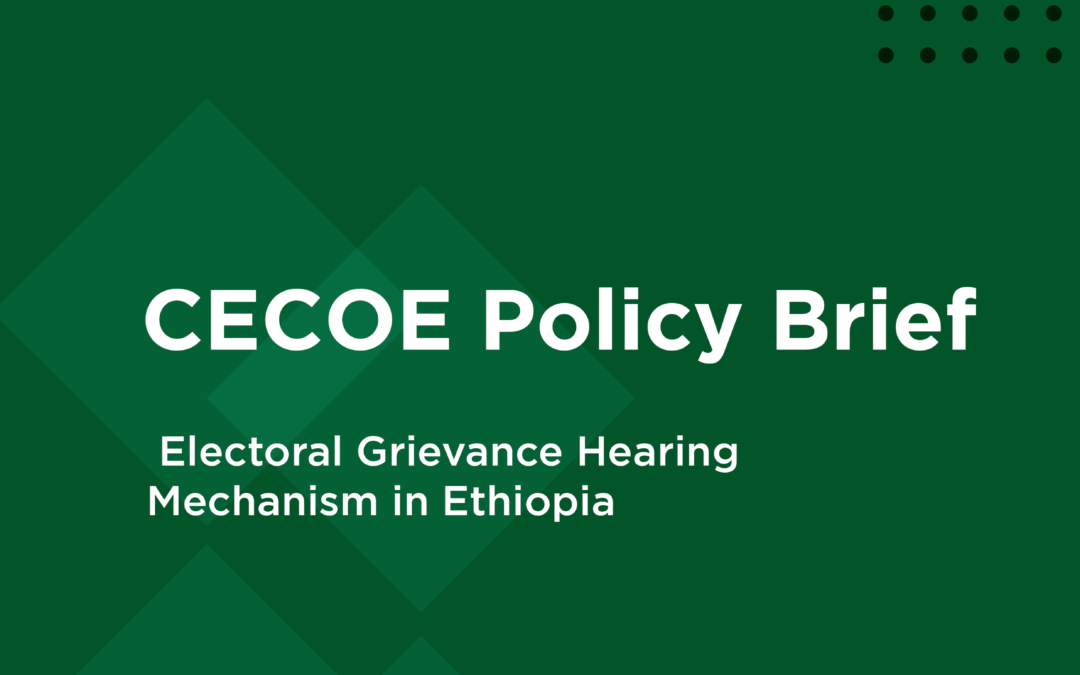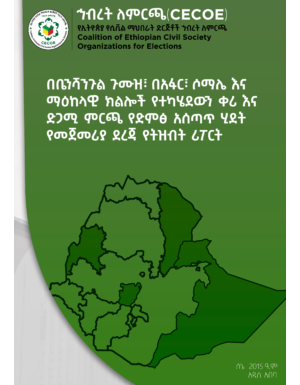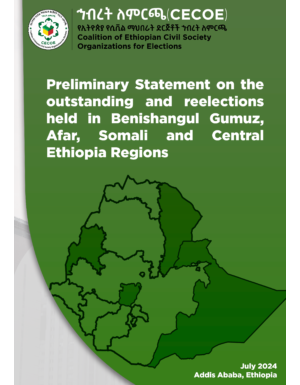The establishment and functionality of Grievance Hearing Committees (GHCs) is crucial for the timely and appropriate resolution of electoral complaints in every election. Ensuring the effectiveness and efficiency of these GHCs requires putting in place a practical legal framework that balances operational requirements along with the rights of complainants. The Ethiopian election proclamation and the GHCs establishment and operation directive indicate that GHCs are to be established in polling stations, constituencies and regional branch offices with each committee comprising three members.
CECOE’s observation of the Sixth General Elections identified that the NEBE was not able to effectively utilize the legally established GHCs. As a result of this, CECOE has gathered that irregularities were faced by complainants (voters, political parties and others). During the Sixth General Elections, complaints related to counting and tabulation of votes, denial of access to political party agents, dismissal of party agents from the counting process, voter intimidation, interference by ruling party members, and limitation posed by authorities to engage in mobile election observation were some of the instances for submission of complaints.
This policy brief is prepared with the aim of presenting an argument to initiate policy reform discussions among policymakers, more specifically the NEBE, on the Electoral Grievance Mechanisms in Ethiopia. It presents the recommendations to the NEBE, political parties, and civil society organizations (CSOs).
| File | Action |
|---|---|
| Electoral Grievance Hearing Mechanism in Ethiopia English.pdf | Download |



